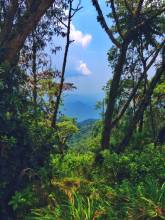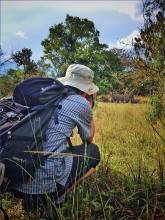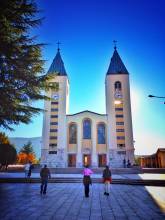Countries and People of West Africa
West Africa is a vibrant and diverse region located on the westernmost part of the African continent. Comprising 16 countries, it is a land of rich history, cultural heritage, natural wonders, and economic significance. This chapter serves as an introduction to the captivating region of West Africa, providing an overview of its geography, historical background, cultural diversity, and key features that make it a fascinating destination to explore.
is a vibrant and diverse region located on the westernmost part of the African continent. Comprising 16 countries, it is a land of rich history, cultural heritage, natural wonders, and economic significance. This chapter serves as an introduction to the captivating region of West Africa, providing an overview of its geography, historical background, cultural diversity, and key features that make it a fascinating destination to explore.
Geography and Landscape of West Africa
West Africa encompasses a vast and varied landscape that encompasses coastal areas, fertile plains, savannahs, dense rainforests, mountains, and semi-arid regions. The region is bordered by the Atlantic Ocean to the west, the Sahara Desert to the north, and is intersected by major rivers like the Niger , Senegal
, Senegal , Gambia
, Gambia , and Volta. This diverse geography creates a range of ecosystems and habitats, supporting a wide array of flora and fauna.
, and Volta. This diverse geography creates a range of ecosystems and habitats, supporting a wide array of flora and fauna.
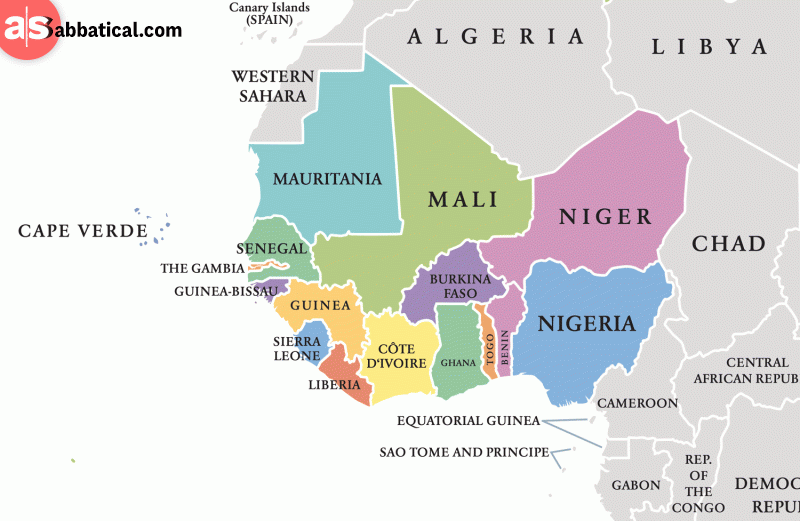
Historical Background about West Africa
West Africa has a rich historical legacy, with ancient empires, kingdoms, and trade routes that shaped the region's development. Empires such as Ghana , Mali
, Mali , and Songhai flourished, with Timbuktu becoming a renowned center of learning and trade. The region was a significant hub for trans-Saharan trade, connecting Africa
, and Songhai flourished, with Timbuktu becoming a renowned center of learning and trade. The region was a significant hub for trans-Saharan trade, connecting Africa with the Middle East
with the Middle East , Europe
, Europe , and beyond.
, and beyond.
Cultural Diversity of West Africa
West Africa is home to a remarkable cultural tapestry, encompassing numerous ethnic groups, languages, religions, and customs. Each country within the region has its own distinct cultural traditions, music, dance forms, oral storytelling, and artistic expressions. The region's cultural heritage is celebrated through colorful festivals, traditional ceremonies, and vibrant marketplaces.
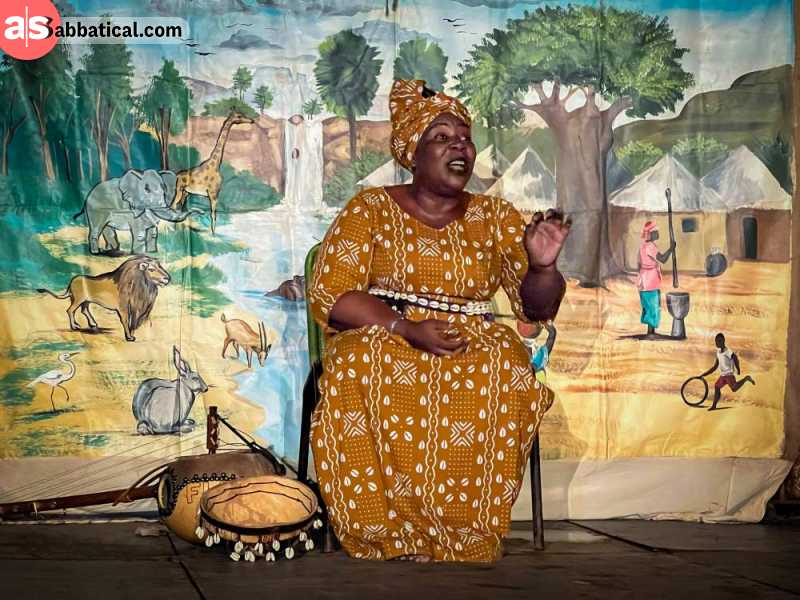
Economic Significance of West Africa
West Africa plays a crucial role in Africa's economic landscape. The region possesses abundant natural resources, including oil, gas, minerals, and agricultural products such as cocoa, coffee, and cashews. It is also a hub for trade, commerce, and services, with bustling urban centers and emerging industries driving economic growth.
Challenges and Opportunities of West Africa
While West Africa is endowed with rich resources and cultural wealth, it also faces various challenges. These include poverty, political instability, armed conflicts, climate change, and the need for sustainable development. However, the region presents immense opportunities for growth, innovation, and collaboration in sectors such as agriculture, renewable energy, tourism, and technology.
Travel and Tourism of West Africa
West Africa offers an enchanting travel experience for adventurers, history enthusiasts, nature lovers, and cultural explorers. From exploring ancient ruins and vibrant markets to immersing oneself in traditional music and dance, the region offers a unique blend of historical, cultural, and natural attractions. Visitors can also enjoy beautiful beaches, wildlife reserves, and engage with local communities to experience the warm hospitality and diverse traditions of West Africa.
In the following, we will delve deeper into each country of West Africa, exploring their distinct features, iconic landmarks, cultural highlights, and the unique experiences they offer. Join us on this journey through West Africa to discover the beauty, diversity, and allure of this captivating region.
The Countries of West Africa
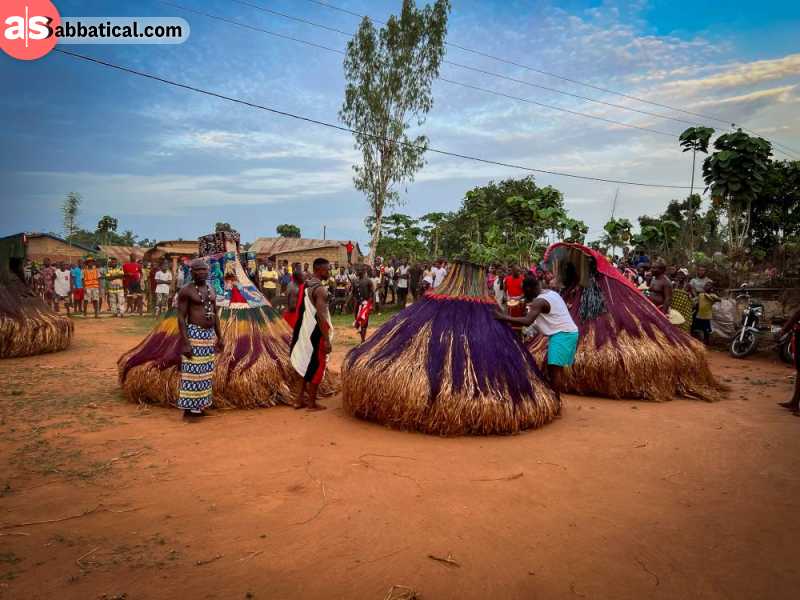
Benin , the birth place of Voodoo
, the birth place of Voodoo
Benin is considered the birthplace of Voodoo, a traditional religion practiced by a significant portion of the population. Voodoo ceremonies, rituals, and festivals play a prominent role in Beninese culture and offer a unique insight into the spiritual traditions of the country. Benin hosts various colorful and lively festivals throughout the year. The most notable is the Voodoo Festival held in Ouidah, where practitioners gather to honor their ancestors and deities through music, dance, and rituals.
Benin is known for its intricate bronze and wood carvings, which are highly valued and sought after. The craftsmanship of Beninese artisans is renowned for its skill and attention to detail, making it a hub for traditional African art.
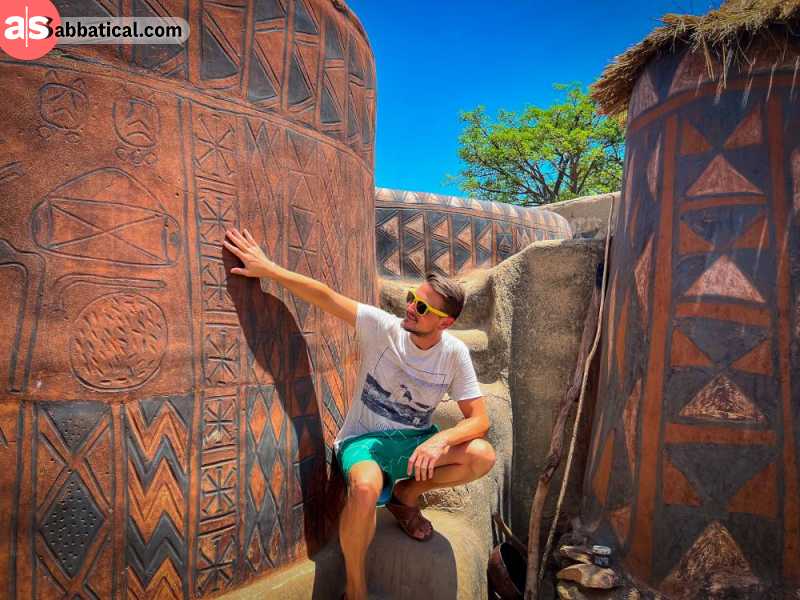
Burkina Faso , a nation of revolutionaries
, a nation of revolutionaries
Despite being a landlocked country, Burkina Faso offers unique natural beauty and ecotourism opportunities. The country has several national parks and reserves, including Arly National Park and W National Park, where visitors can spot diverse wildlife, such as elephants, lions, and hippos. The unique landscapes of the Sahel region and the picturesque Sindou Peaks are also worth exploring.
Burkina Faso is famous for its colorful and lively festivals, where communities come together to celebrate various occasions. The most notable festival is the biennial FESTIMA (International Festival of Masks and Arts), which showcases traditional masks, dances, and performances from different ethnic groups across the country.
Burkina Faso has a significant revolutionary history and played a role in the Pan-African movement. The country's first president, Thomas Sankara, led a period of social and political transformation during the 1980s, promoting self-sufficiency, women's rights, and anti-imperialist policies. Sankara's legacy continues to influence the country and inspires political and social discussions.
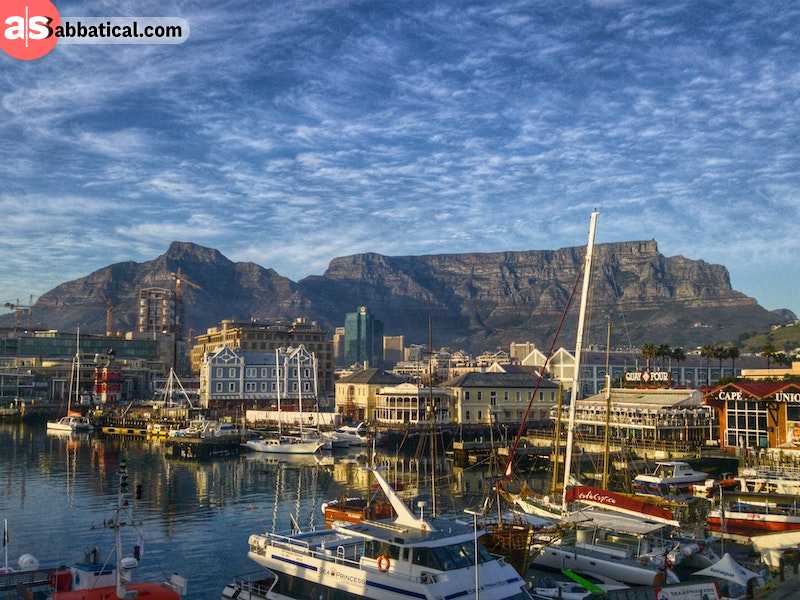
Cape Verde , windsurfing the volcanic islands
, windsurfing the volcanic islands
Cape Verde is composed of volcanic islands, and its landscapes are characterized by rugged mountains, volcanic peaks, and dramatic rock formations. The volcanic terrain offers opportunities for hiking, exploring crater lakes, and enjoying breathtaking views, such as those from Pico do Fogo on Fogo Island. Cape Verde is renowned for its stunning beaches, with white sands and crystal-clear turquoise waters. The islands offer a variety of beach experiences, from lively and bustling stretches to secluded and pristine spots. Santa Maria Beach on Sal Island and Praia de Chaves on Boa Vista Island are particularly popular.
Cape Verde has seen significant development in its tourism industry, with a growing number of resorts, hotels, and tourist facilities on various islands. The country offers a range of accommodations, from luxurious beachfront resorts to charming boutique hotels and guesthouses. Cape Verde's windy climate and ocean currents make it a paradise for windsurfing, kitesurfing, and other water sports enthusiasts. The islands of Sal, Boa Vista, and São Vicente are particularly popular for their ideal wind and wave conditions.
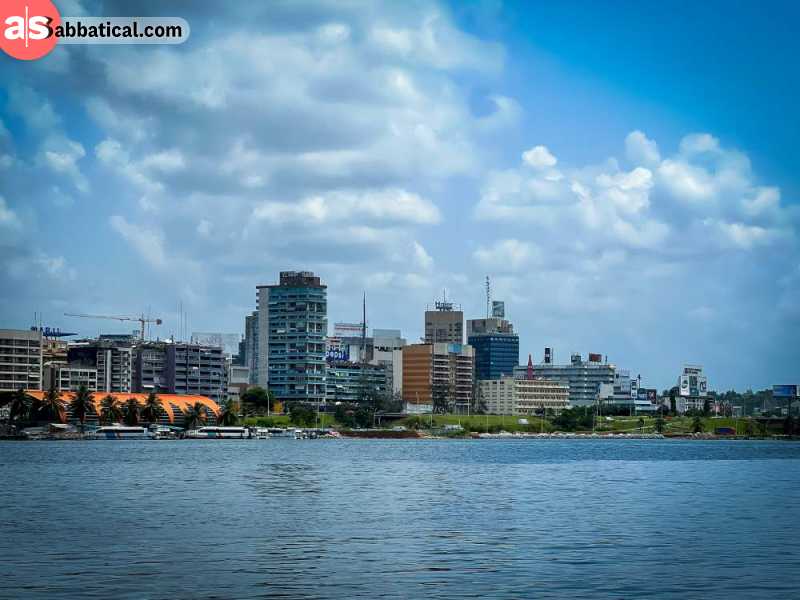
Ivory Coast (Côte d'Ivoire), chocolate paradise
(Côte d'Ivoire), chocolate paradise
The Ivory Coast is home to several national parks and reserves that preserve its rich biodiversity. Taï National Park, a UNESCO World Heritage site, is known for its pristine rainforest and diverse wildlife, including chimpanzees, pygmy hippos, and rare bird species. Other parks, such as Comoé National Park and Mount Nimba Strict Nature Reserve, offer opportunities for wildlife viewing and nature exploration.
Football is a popular sport in the Ivory Coast, and the country's national team, known as the "Elephants," has achieved international recognition. Ivorian players, such as Didier Drogba and Yaya Touré, have had successful careers and gained fame on the global football stage. The Ivory Coast is the world's leading producer of cocoa beans. The country's fertile soil and favorable climate make it an ideal region for cocoa cultivation. Ivory Coast's cocoa industry plays a crucial role in the global chocolate supply chain.
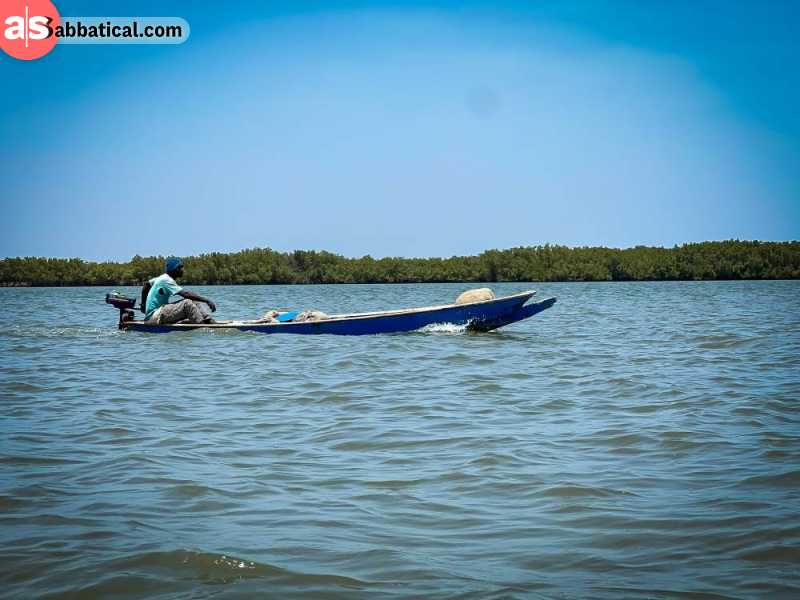
The Gambia, bird watching along the river
The Gambia gained international recognition through Alex Haley's book "Roots" and subsequent television series, which traced the story of Kunta Kinte, a young Gambian man captured and enslaved in the United States. The country has embraced its role in the transatlantic slave trade and developed a thriving roots tourism industry, with heritage sites, museums, and cultural experiences that educate visitors about the history and legacy of slavery.
The Gambia River offers opportunities for river cruises, allowing visitors to explore its banks, observe wildlife, and experience the unique landscapes and rural life along the river. Birdwatching is particularly popular, as the country is a haven for bird species, making it a paradise for bird enthusiasts. The Gambia is known for its community-based tourism initiatives, where visitors can engage with local communities, participate in cultural activities, and support sustainable development projects. This approach allows tourists to have authentic experiences while contributing to the well-being of local communities.
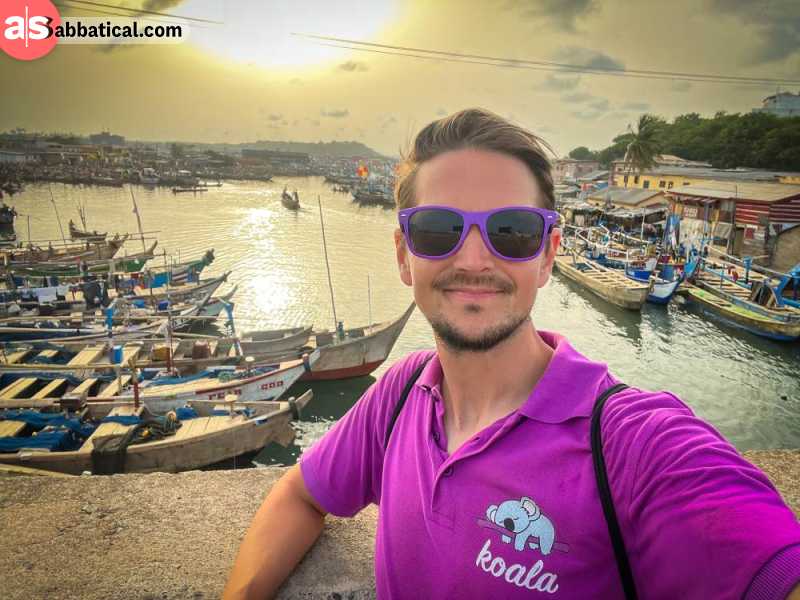
Ghana, transatlantic slave trade
Ghana has a rich historical background, being the home of several powerful ancient empires, including the Ashanti Empire and the Kingdom of Akwamu. The country played a significant role in the transatlantic slave trade, and its capital, Accra, was an important hub during colonial times. Ghana's history is celebrated through its numerous historical sites, museums, and cultural festivals.
Ghana was the first African colony to gain independence from European colonial rule in 1957, under the leadership of Kwame Nkrumah. This event marked a significant milestone in the Pan-African movement and inspired liberation struggles across the continent. Ghana's independence is commemorated at the Independence Square in Accra and remains an integral part of the country's identity. Ghana has a reputation as one of the most stable and peaceful democracies in Africa. The country has successfully undergone multiple peaceful transitions of power through democratic elections, reinforcing its political stability and promoting a favorable environment for tourism and investment.
Ghana boasts several UNESCO World Heritage sites. The forts and castles along the coast, such as Elmina Castle and Cape Coast Castle, are reminders of the transatlantic slave trade and offer insights into Ghana's historical significance. Additionally, the unique cultural landscape of the Asante Traditional Buildings and the cultural significance of the Densu Delta make them must-visit destinations.
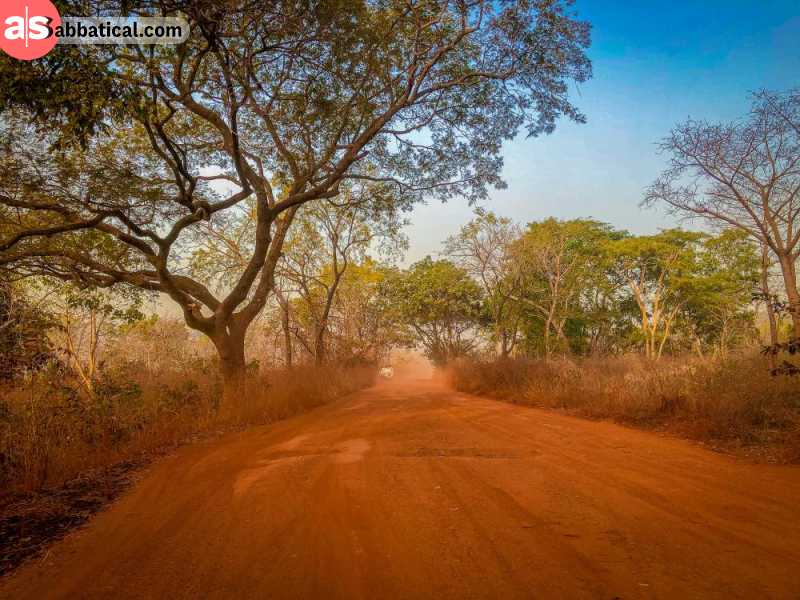
Guinea , hiking in the rain forest
, hiking in the rain forest
The Fouta Djallon Highlands, located in central Guinea, offer picturesque landscapes, including rolling hills, waterfalls, and scenic valleys. It is a region of great natural beauty and is popular among outdoor enthusiasts for activities like hiking and exploring. Guinea has several protected areas and nature reserves that are home to diverse wildlife. The Ziama Massif, for example, is a biodiversity hotspot and a refuge for endangered species like chimpanzees, pygmy hippos, and various bird species.
Guinea is known for its abundant natural resources, particularly bauxite, which is used in the production of aluminum. The country has one of the world's largest reserves of bauxite, making it an important player in the global mining industry. Guinea has sites of spiritual and cultural significance. The Grand Mosque of Conakry, one of West Africa's largest mosques, is an architectural masterpiece and an important religious center. Additionally, traditional rituals and ceremonies, such as the Baga circumcision rituals and the Sosso-Bala initiation ceremonies, offer insights into the country's cultural practices.
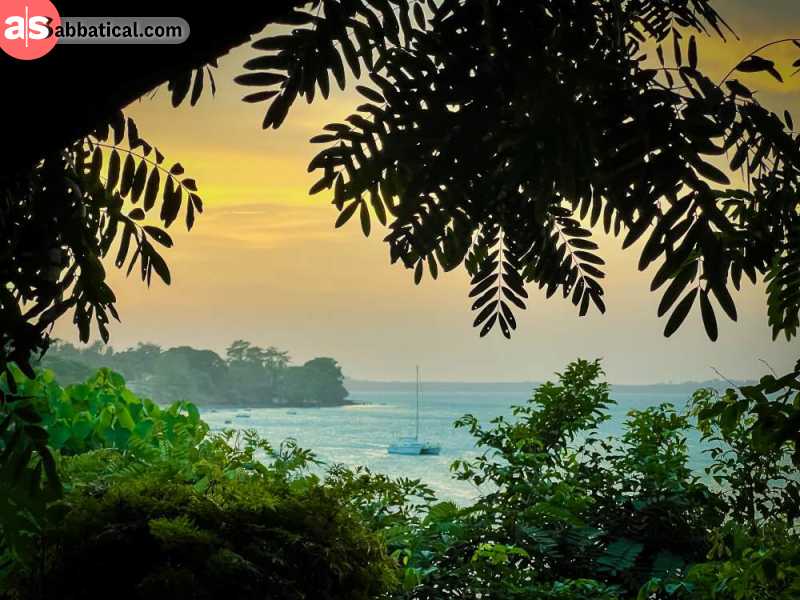
Guinea-Bissau , archipelago of biodiversity
, archipelago of biodiversity
The Bijagós Islands, a group of around 80 islands, offer pristine beaches, untouched landscapes, and a unique cultural experience. The islands provide opportunities for ecotourism, including birdwatching, exploring traditional communities, and experiencing the local way of life. Guinea-Bissau is known for its rich biodiversity, with diverse ecosystems that include mangroves, wetlands, savannas, and forests. The Bijagós Archipelago, a UNESCO Biosphere Reserve, comprises numerous islands with unique flora and fauna, including endangered species such as manatees and sea turtles.
The salt pans of Guinea-Bissau, located in the northern part of the country, offer a fascinating sight. These vast expanses of salt flats provide opportunities to witness traditional salt production methods and the unique landscapes they create. The diverse ecosystems of Guinea-Bissau are home to a variety of wildlife, including primates, crocodiles, hippos, and a wide range of bird species. Birdwatchers can enjoy spotting numerous migratory and resident birds in the country's wetlands and forests.
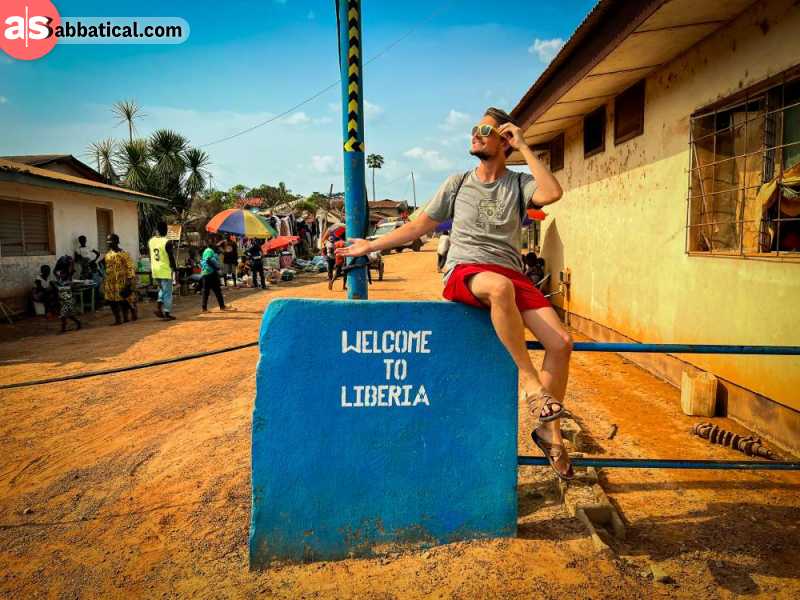
Liberia , founded by African American slaves
, founded by African American slaves
Liberia holds a distinctive place in history as Africa's first republic founded by formerly enslaved African Americans and free-born African descendants. This historical significance contributes to the country's identity and cultural heritage. Liberia is known for the Firestone Natural Rubber Plantation, one of the world's largest rubber plantations. This historic site played a significant role in the country's economic development and remains an important industry.
Mount Nimba, a UNESCO World Heritage site, is a mountain range bordering Liberia, Guinea, and Côte d'Ivoire. It features unique ecosystems, including tropical rainforests, grasslands, and montane forests, as well as an abundance of biodiversity. Liberia boasts stunning beaches along its coastline, with pristine stretches of sand and turquoise waters. Destinations like Robertsport and Buchanan offer opportunities for relaxation, water sports, and beachside activities.
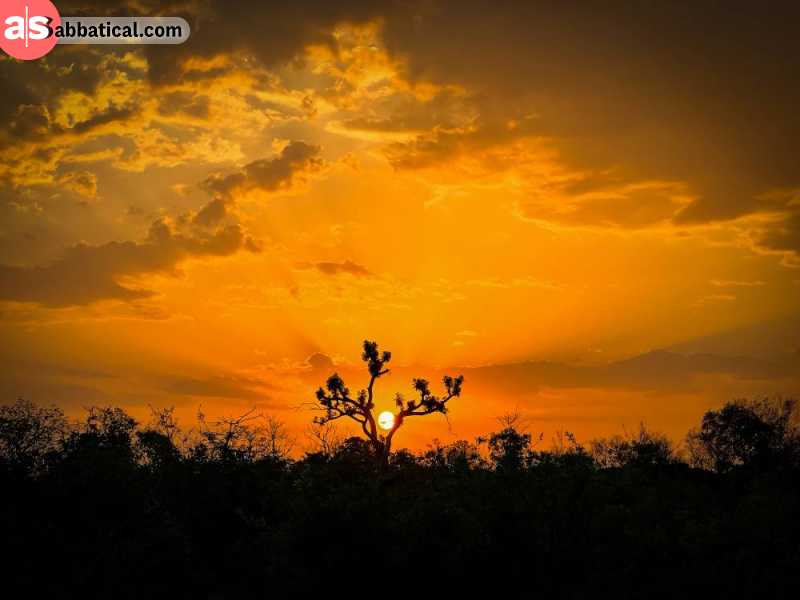
Mali, Mansa Musa and the gold rush of Timbuktu
The Niger River flows through Mali, providing water resources and supporting a variety of wildlife. Visitors can take boat trips along the river, where they may spot hippos, crocodiles, and numerous bird species.
Mali has a rich history, including the famous Mali Empire, known for its powerful rulers and the legendary king Mansa Musa. The remnants of this empire, such as the UNESCO-listed city of Timbuktu, showcase the architectural, cultural, and intellectual achievements of the region. The town of Djenné is home to the Great Mosque of Djenné, the world's largest adobe (mud-brick) building and a UNESCO World Heritage site. The mosque is an architectural masterpiece and a symbol of the region's cultural heritage. The Dogon people, residing in the Bandiagara Escarpment, have a unique cultural heritage, known for their intricate art, mythology, and cliff-dwelling villages. Visitors can witness traditional ceremonies, explore ancient rock paintings, and learn about the Dogon's spiritual beliefs.
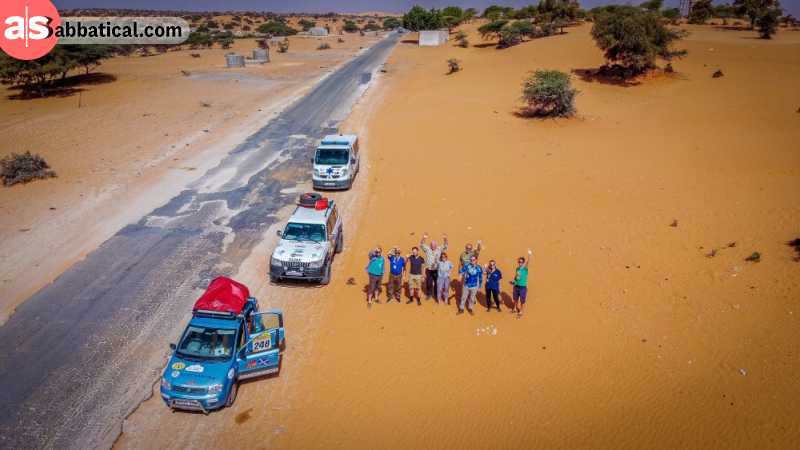
Mauritania , camel trekking in the Sahara Desert
, camel trekking in the Sahara Desert
Much of Mauritania is encompassed by the Sahara Desert, offering a mesmerizing and otherworldly experience. The vast sand dunes of the Sahara Desert, including the iconic dunes of the Erg Chebbi (in Marocco) and the Adrar region (in Algeria ), attract visitors interested in desert adventures, camel trekking, and stargazing. Chinguetti, a historic city in Mauritania, is often referred to as the "seventh holy city of Islam." It features ancient mosques, libraries, and traditional architecture, providing a glimpse into Mauritania's rich history and Islamic heritage.
), attract visitors interested in desert adventures, camel trekking, and stargazing. Chinguetti, a historic city in Mauritania, is often referred to as the "seventh holy city of Islam." It features ancient mosques, libraries, and traditional architecture, providing a glimpse into Mauritania's rich history and Islamic heritage.
A UNESCO World Heritage site, Banc d'Arguin National Park is a vital marine ecosystem located along the Atlantic coast of Mauritania. It is known for its diverse birdlife, including nesting colonies of migratory birds, as well as marine mammals like dolphins and seals. In the Adrar region, you can find ksour, fortified traditional settlements made of mud and stone. These architectural marvels have been standing for centuries, offering insights into the region's ancient history and defensive strategies.

Niger, from the Sahara Desert to the Niger River
Niger is home to a significant portion of the Sahara Desert, offering a unique opportunity to experience its vast dunes and breathtaking desert landscapes. The mesmerizing beauty of places like the Tenere Desert and the Aïr Mountains attracts adventurers and nature enthusiasts. Agadez, the largest city in northern Niger, is a UNESCO World Heritage site known for its historic architecture, such as the Great Mosque of Agadez, which showcases stunning traditional Sahelian mud-brick construction. Niger has ancient megalithic remains, such as the historic site of Djado, consisting of stone circles and ancient tombs. These archaeological sites offer insights into the region's early civilizations and cultural heritage.
Niger is home to semi-nomadic and nomadic communities, such as the Tuareg and Fulani, who have preserved their traditional way of life. Engaging with these communities allows visitors to learn about their customs, traditions, and the challenges they face in a changing world.
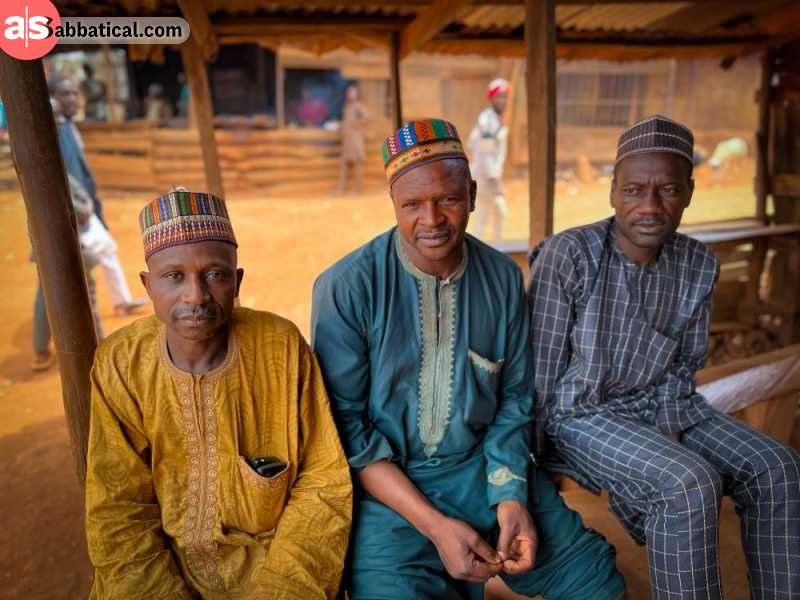
Nigeria , birthplace of Afrobeats and Nollywood
, birthplace of Afrobeats and Nollywood
Nigeria, the most populous country in Africa, has several special features that make it unique and worth exploring. Nigeria's film industry, commonly known as Nollywood, is the second-largest in the world, producing a vast number of movies annually. Nollywood films are known for their dramatic storytelling and have gained popularity both within and outside Africa. Nigeria is the birthplace of Afrobeat, a genre that fuses traditional Nigerian rhythms with jazz, funk, and other genres. The legendary musician Fela Kuti popularized Afrobeat, and today, Nigerian artists like Burna Boy and Wizkid continue to make waves internationally.
Nigeria is blessed with abundant natural resources, including oil, natural gas, solid minerals, and agricultural products. The country's oil industry has played a significant role in its economy, although efforts are being made to diversify into other sectors. Nigeria is home to diverse ecosystems and a variety of wildlife. National parks and reserves like Yankari National Park and Cross River National Park offer opportunities for wildlife viewing, birdwatching, and eco-tourism activities.

Senegal, fusion of traditional rhythms and modernity
Senegal is known for its rich cultural heritage and vibrant music scene. The country has produced world-renowned musicians like Youssou N'Dour, who popularized Senegalese music globally. Genres such as mbalax, a fusion of traditional rhythms and modern influences, are deeply rooted in Senegalese culture. Senegal is famous for its warm hospitality and the concept of "teranga," which means hospitality and generosity in the local Wolof language. Visitors to Senegal often experience the welcoming nature of the Senegalese people, who embrace guests with open arms.
Senegal boasts diverse natural landscapes, including beautiful beaches, lush national parks, and the stunning Delta du Saloum, a UNESCO Biosphere Reserve. These areas offer opportunities for wildlife viewing, birdwatching, and eco-friendly tourism activities.
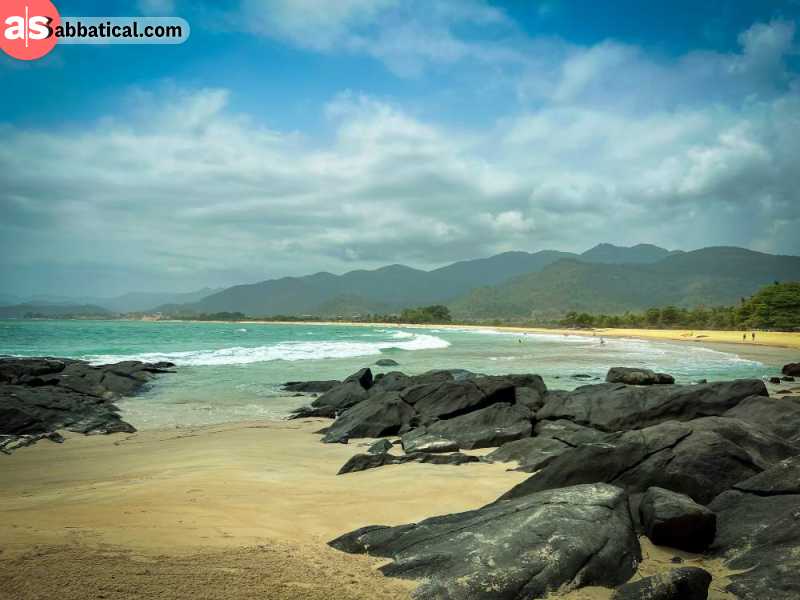
Sierra Leone , from civil war to blood diamonds
, from civil war to blood diamonds
Sierra Leone is known for its stunning natural landscapes, including pristine beaches, lush rainforests, and breathtaking mountains. The country's white sandy beaches, such as those found in places like Banana Island and Freetown Peninsula, offer tranquility and picturesque settings. Sierra Leone is home to diverse ecosystems and a wide range of wildlife. It has several national parks and protected areas, including Outamba-Kilimi National Park and Tiwai Island Wildlife Sanctuary, where visitors can observe various species of primates, birds, and other animals in their natural habitats.
After experiencing a devastating civil war between 1991 and 2001, Sierra Leone has shown remarkable resilience and progress in its post-conflict recovery. The country has made strides in rebuilding infrastructure, improving governance, and fostering peace and stability. Sierra Leone gained global attention through the 2006 film "Blood Diamond," which shed light on the country's diamond industry and its history of conflict. Today, efforts have been made to promote responsible and sustainable diamond mining practices.

Togo , from picturesque waterfalls to the wild ocean
, from picturesque waterfalls to the wild ocean
Lomé, the capital city of Togo, is known for its vibrant markets, bustling nightlife, and colonial-era architecture. The city offers a mix of African and European influences, with a lively atmosphere and a variety of culinary delights.
Togo is blessed with diverse natural landscapes, including stunning beaches along the Gulf of Guinea, rolling hills, lush forests, and picturesque waterfalls. The country's landscape provides opportunities for outdoor activities such as hiking, wildlife spotting, and relaxing on serene beaches. Togo has made efforts to promote sustainable tourism and ecotourism initiatives. From exploring national parks like Fazao-Malfakassa and Sarakawa to visiting the sacred forests, there are opportunities to appreciate Togo's biodiversity and support conservation efforts.
Like its neighboring country Benin, Togo has a significant presence of Voodoo practices and beliefs. Voodoo ceremonies and rituals are an integral part of Togolese culture, offering a unique insight into the spiritual traditions of the country.
Conclusion: Travel to West Africa!
For travelers and adventurers, West Africa beckons with ancient ruins, vibrant markets, and the rhythmic beats of traditional music and dance. From pristine beaches to wildlife reserves teeming with biodiversity, there is something for every nature lover and culture enthusiast.
So, pack your bags and embark on a journey of discovery through West Africa. Let its history, culture, and natural wonders ignite your curiosity and leave a lasting impression. Get ready to create memories, forge connections, and uncover the treasures that make West Africa an enchanting destination like no other.






